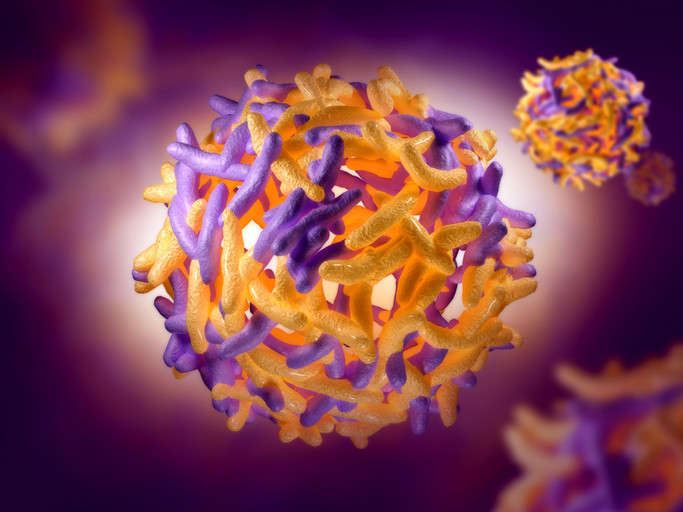(Translated by Google) Good service and kindness Edith is a very kind person (Original) Buena atención y amabilidad Edith es una persona muy amable
Read More
Yellow Fever Outbreak and Vaccine Shortage
Posted: Mar 30th, 2017 at 04:54PM

Yellow Fever Vaccine Shortage
In 2016, as the Zika virus was moving toward the USA from Brazil, yellow fever was ravaging across Angola and the Democratic Republic of Congo. The mosquito-borne disease caused the death of more than 400 people and left thousands sick. This yellow fever epidemic is not yet over and has exposed glaring weaknesses in how the world responds to infectious diseases in the same way that Ebola did in West Africa.
There is currently no cure for yellow fever but there is a vaccine against the disease. Approximately 15 percent of individuals who contract the disease progress to a severe form that is characterized by jaundice, which gave the condition its name. The outbreak in Luanda, Angola began in December 2015 before spreading to the Democratic Republic of Congo. This outbreak depleted the world's stockpile of the yellow fever vaccine. The disease took a huge toll in the 18th and 19th centuries in Europe and the Americas.
The National Government of Angola, the World Health Organization (WHO) and other public health organizations have struggled to stop the spread of the disease. The biggest challenge in these efforts has been that health officials cannot procure the yellow fever vaccine fast enough. Making a batch of the vaccine can take up to six months and only four companies produce the vaccine globally.
The process used to make the vaccine (which involves the use of chicken eggs) dates back to 80 years ago which has not helped the situation either. In July 2016, the WHO also communicated that it was short of about nine million doses of the vaccine. This complicated matters even more.
Additionally, missteps by governments and the WHO made the situation worse. In early 2016, Angola could not account for a million doses of the yellow fever vaccines given to it by the WHO as reported by the Associated Press. Vaccination efforts against the disease have also been hampered by a paucity of refrigeration and syringes. The lack of laboratories has also made it difficult to track the spread of the disease.
Given the scarcity and shortage of the yellow fever vaccine, the WHO and its partners are immunizing people with one-fifth of the standard dose. This should give immunity against the disease for at least 12 months. In August 2016, health officials commenced a vaccination campaign against the disease for more than 14 million people in Congo and Angola. This was started before the onset of the next rainy season since the rainy season together with a buildup of trash across these countries formed perfect breeding grounds for the Aedesaegypti mosquito, the primary carriers of yellow fever.
The vaccination campaign is one of the most ambitious campaigns ever undertaken but it bore fruit since no new confirmed cases of the disease were reported in Angola in the months of July and August 2016. Health experts were worried that the disease would spread to other countries. This prediction did come true.
During the epidemic, the rest of the world was concerned with the spread of the Zika virus across Brazil during the Olympics. All efforts were made to ensure that the spread of Zika was mitigated during the global event which could have led to a global outbreak of the disease if efforts were not made to have it under control. As such, the yellow fever epidemic in Angola and Congo was not given the international attention it deserved.
Volunteers from Asia came to the aid of Angola. The problem was that these volunteers were not vaccinated against the disease they were going to try to bring under control. Once coming to the aid of the people, they returned to Asia unaware that they were carrying yellow fever. Eleven of these cases made their way to China. Each of the infected individuals reported that they had been to Africa for work.
Asia is not new to mosquito-borne diseases, having handled the Zika virus, dengue fever, and even malaria in the past. Asia is also home to millions of Aedesaegypti mosquitos which are responsible for spreading yellow fever. The virus is, however, not endemic to Asia. With the cases that made their way to China, people would have expected an outbreak of the disease in China. This was a close call in Asia but it was fortunately stopped before the disease became an epidemic in this region. If such an outbreak is not stopped next time, a global epidemic may be inevitable.
Given that yellow fever is a highly contagious disease, donor countries like the USA, the WHO, and countries at risk of yellow fever epidemics need to invest more and act faster whenever there is an outbreak of the disease. Industrialized countries also need to provide funding so that a faster production process of the vaccine can be established. Increased capacity to handle such epidemics in the future should also be invested in. Similar investments are also necessary locally to equip labs so that the diagnosis of yellow fever and other infectious diseases can be made quickly.
Additionally, controlling mosquitos is critical too. Local communities should take simple steps such as getting rid of stagnant water, garbage removal, application of insecticides and insect repellents and using screens to reduce the infection rates of the disease. National and local governments need to take the lead in such efforts while the international community offers support for these efforts.
 Infectious diseases such as yellow fever, Ebola, and Zika have shown that they are not limited to particular regions within the world. More efforts should, therefore, be put by countries globally to ensure that the spread of such epidemics is mitigated early on to avoid global epidemics. Immunization against vaccine-preventable diseases should also be encouraged globally because most of these vaccine-preventable diseases are highly contagious and most of them do not have cures. Vaccination, therefore, offers the best protection against these diseases.
Infectious diseases such as yellow fever, Ebola, and Zika have shown that they are not limited to particular regions within the world. More efforts should, therefore, be put by countries globally to ensure that the spread of such epidemics is mitigated early on to avoid global epidemics. Immunization against vaccine-preventable diseases should also be encouraged globally because most of these vaccine-preventable diseases are highly contagious and most of them do not have cures. Vaccination, therefore, offers the best protection against these diseases.
International travelers should ensure that they are up-to-date with all their vaccinations against diseases endemic in the regions they are traveling to before traveling to their preferred destinations. In the event that outbreaks of these diseases do occur, vaccines should be immediately availed to protect the greater population against the disease. More efforts and investments in vaccine production should be made to ensure that no vaccine shortages occur, especially in the face of an imminent epidemic.

OMG, so e7 is one-of-a-kind in Vegas. My husband needed a TB Skin Test and I was able to book for the next hour. The staff actually answers the phone, right away. They are kind and nice. Upon arrival, at e7 Windmill location, the receptionist (who's name I do not have) was so kind, nice, and caring. She's a gem. During our brief wait for my husband's appointment, I witnessed the interaction between staff members and also, their clients. It's amazing that the entire, big e7 Team loves each other and what they do. You do not see this anywhere else. The team's interaction was magical. AND then how each staff member interacts with their patient, well... just unique. My husband had Alia, who definitely folded her Angel Wings in to fit in to the treatment room. What an amazing being. So patient, as my husband was on a walker and not so ambulatory. She explained all so clearly and easily. Truly, we have never experienced such CARE not just in Vegas, but anywhere. She also went above-and-beyond for us as to the next step. e7 scared me at first online, but now, they are my Go To and I have already recommended to many. God bless Alia and all. The Team truly LOVE what they do and it shows.
Read More

















